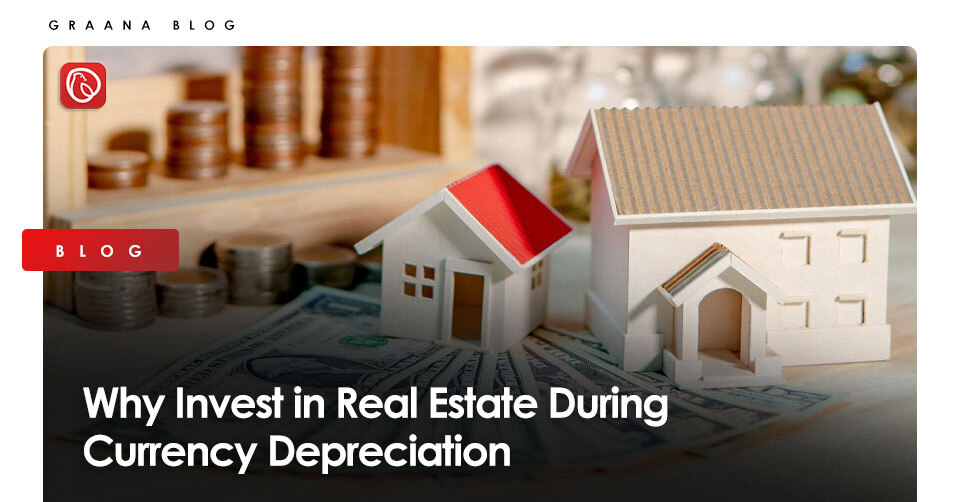
The current fiscal year presents an ambiguous state of the global economy, with the risk of a recession looming for some major economies around the world. According to the IMF, countries that recovered relatively quickly from the effects of the pandemic will be in a stronger position compared to countries that are still struggling to pick up pace after COVID-19. However, the case is different for Pakistan as dwindled foreign exchange reserves and an unstable political situation have created further turbulence in the financial market, which resulted in currency depreciation.
The Pakistani Rupee (PKR) fell to an all-time low against the dollar during the intraday trade on Thursday, reaching Rs. 226 in the interbank market. According to analysts, the massive depreciation of Rs. 11 or nearly 5% against the greenback is due to the renewed political uncertainty after the Punjab by-polls.
Apart from the political uncertainty, Fitch Rating Agency has downgraded Pakistan’s outlook from stable to negative, which has further impacted investor confidence and sent the market into a frenzy. All these events are indicating that more turmoil is expected and we should prepare for it.
To prepare for the looming economic crisis, it is recommended that you invest in hard assets that thrive during currency depreciation or hyperinflation. There is one particular asset that performs well in such circumstances – and that is real estate.
Historically, investing in real estate during a depreciation period has proved to be quite useful as the property purchased is worth more in terms of the national currency. In simple words, the value of a property increases in nominal terms when depreciation is applied to the currency. This is why you should invest in real estate instead of keeping your money idle in a bank account.
Take an example of the last three days of currency depreciation where the rupee fell approximately 5% against the US dollar. Keeping this in mind, your money in the bank is worth less before this depreciation. For instance, if you have 10 million rupees in your bank account and the currency is depreciated by 3%, the amount you have in the account is worth approximately 9.7 million rupees.
Many people also keep money in a savings account, which can protect them from this high inflationary period. But when you compare the inflation rate with the return rate of the savings account, you will get the whole picture. For example, if the inflation rate is 2% and you’re getting a 1% return rate on your savings account, then technically yearly inflation is negating the return on savings.
Whenever a high inflationary period occurs, you lose the money you have in the bank. This is why it is important to invest in tangible assets like real estate.
One thing is certain: real estate, in these times, is an excellent investment strategy. It is the least affected sector during currency depreciation. Yes, the cost of construction goes up, but the prices of properties increase as well. The purchasing power of the people is also affected but, despite all factors, the real estate market is still expected to flourish as most people will invest in properties to achieve financial stability in the long run.
Following are some of the benefits of investing in real estate during ruppee depriciation.
This is one of the benefits of investing in the real estate industry as you get passive cash flow in the form of monthly rental income. Most people invest in rental properties to cover all their monthly expenses and also to save extra money on a monthly basis. However, you have to be smart when investing in rental properties, as you should choose areas where there is a high demand for rentals.
With the depreciation of the Pakistani Rupee, the price of properties is set to increase as more people will look for investment options in this high inflationary environment. The increase in demand and limited supply of land will increase the prices, making it a great investment option for consumers. Those who have already invested in real estate will enjoy the appreciation of capital as their property value becomes higher.
As we have mentioned earlier, real estate is an excellent way to protect yourself from inflation. The prices of both residential and commercial real estate tend to remain high, hence making real estate the most suitable hedge against rising inflation.
In a nutshell, the political uncertainty and unstable economic conditions will further impact the currency, which will result in the further depreciation of the rupee against the greenback in the coming days. This is why there is a need to increase the exposure to sectors like real estate, which have a positive correlation with currency depreciation.
For more news about real estate investment, follow Graana’s blog.
DUBAI: Pakistani real estate developers and representatives showcased a range of commercial and residential investment…
ISLAMABAD: Capital Development Authority (CDA) is currently undertaking a major Rs652 million project to upgrade…
Karachi – Mayor Barrister Murtaza Wahab has announced the launch of a citywide anti-encroachment operation…
ISLAMABAD: CDA Chairman Muhammad Ali Randhawa has directed the immediate restoration of 23 non-functional water…
ISLAMABAD: In a major relief for the real estate sector, the federal government has decided…
DHA Islamabad-Rawalpindi (DHAI-R), one of the most trusted names in Pakistan’s real estate landscape, is…